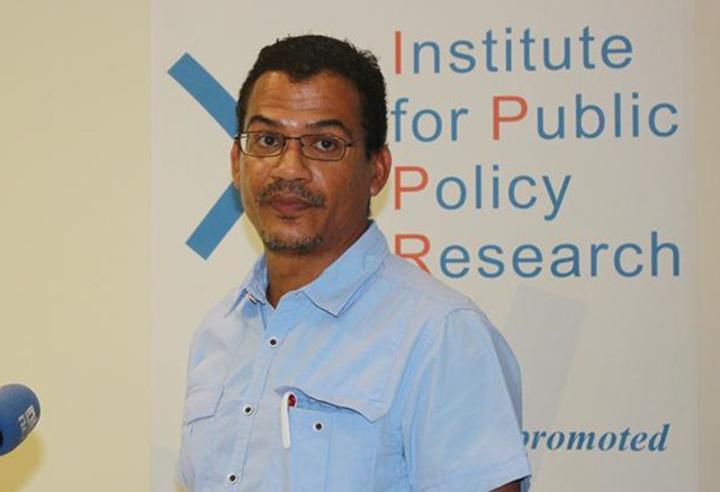Africa-Press – Namibia. THE latest procurement tracker bulletin titled ‘Investigating Procurement’ by the Institute for Public Policy Research (IPPR), released on Wednesday, states that the Public Procurement Unit (PPU), which is tasked with investigating any matter related to procurement, lacks capacity to do so.
Research associate at IPPR Frederico Links said due to the capacity constraints, the unit is not able to undertake the necessary investigations into procurement transactions.
Links made reference to the latest controversies surrounding the health ministry’s clinical supply tender and the construction of the new Namibia Students Financial Assistance Fund (NSFAF) head office.
“These need to be properly investigated and some resolutions in the public interest have to be made. If money has to be reclaimed, if people have to be held accountable, then the investigative mandate of the PPU needs to be properly constituted,” he said.
Links questioned if the systems, processes and institutions in place are working in the public interest.
He believes there are problems with how systems, processes and institutions have functioned in the two tenders.
“How do we improve the investigative capabilities within the PPU going forward to minimise examples of bad procurement systems and governance such as these?”
Links reiterated the IPPR’s proposal for the PPU to become an independent entity to give meaning to its mandate and conduct investigations that are not clouded by suspicions of political influence.
Links said the proposal to have the PPU as an autonomous body should have complementary powers to the Anti-Corruption Commission (ACC) and the police.
“This needs to be a proper law enforcement agency, given the culture of non-compliance with laws and regulations in this country. If we want this entity and law to be optimally implemented and work in the public interest, then this entity that is at the heart of making sure that the law is properly implemented, really has the power to be able to enforce compliance,” he said.
Links is hopeful that the unit will become independent once the Procurement Act is amended again.
The IPPR has recommended the creation of a framework of regular declaration of assets and liabilities within the public sector.
This, according to the IPPR, should be implemented in line with the proposed mechanism of the United Nations Convention Against Corruption mechanisms, to which Namibia is a signatory.
Head of the PPU Francois Brand admitted that the unit lacks capacity due to limited staff to carry out investigations.
“In that respect, we are trying to follow about eight strategies to increase our capacity. But there is some success and we are now doing an analysis to increase the structure to get more people on board,” he said.
Brand said the recruitment of staff at the PPU is lengthy because of the vetting process, due to the sensitivity of the work they do.
He welcomed the idea of the unit becoming an autonomous body.
On the proposal for the regular declaration of assets and liabilities, Brand said it’s a good proposal, but could face challenges with the new amendment to the act.
With the new amendments, because of the large number of public entities, there could be more than 7 000 people working in procurement departments.
“You can imagine the impact such an exercise would require, the resources… Not that we are against it. I like the notion of deploying lifestyle audits. The declaration of assets must come from parliament where it started,” he said.
Brand said the full review of the act will address most of the issues proposed by the IPPR.
However, he warned that it will be a lengthy process.
For More News And Analysis About Namibia Follow Africa-Press






